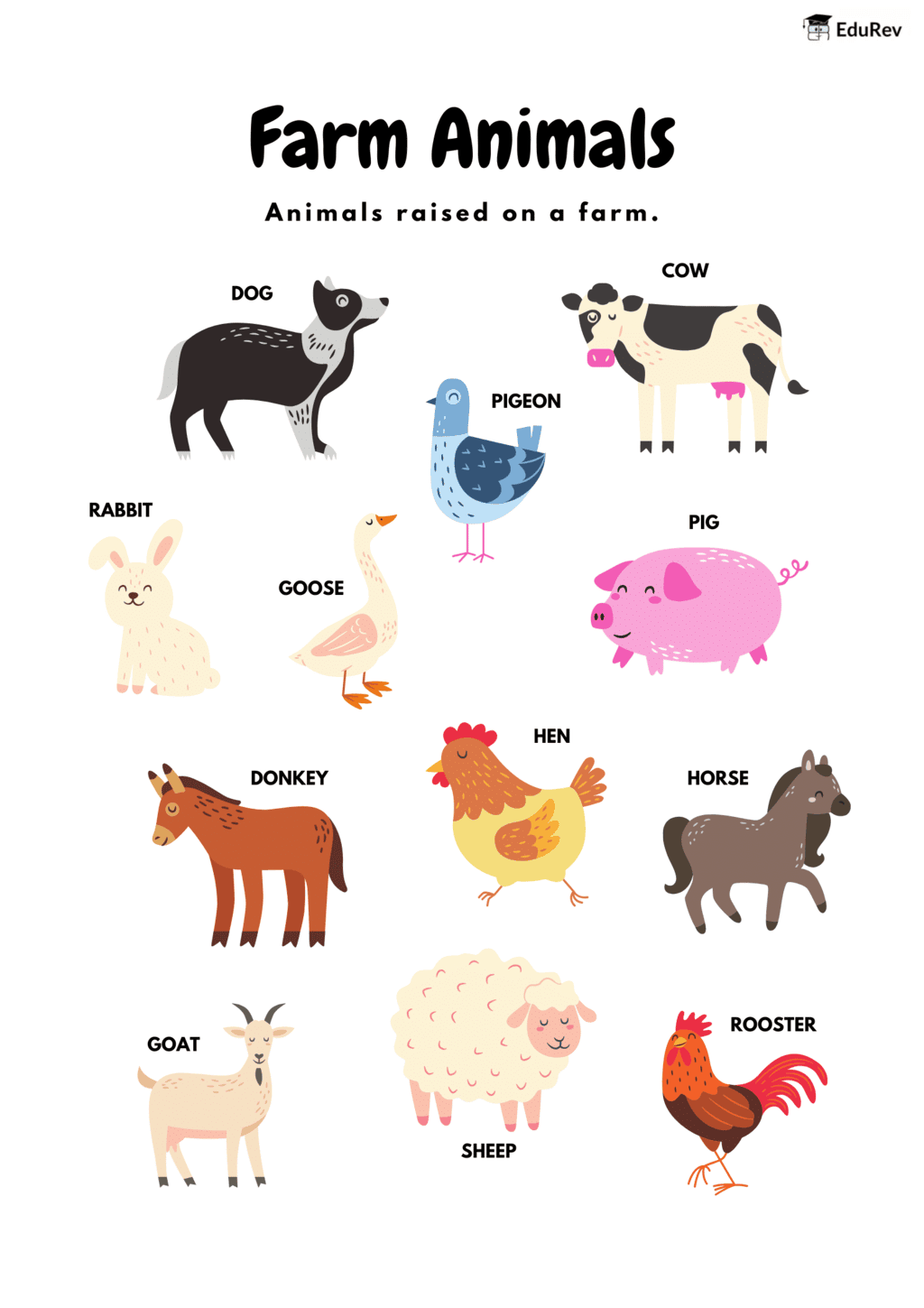Class 2 Exam > Class 2 Notes > EVS for Class 2 > Poster: Farm Animals
Poster: Farm Animals | EVS for Class 2 PDF Download

The document Poster: Farm Animals | EVS for Class 2 is a part of the Class 2 Course EVS for Class 2.
All you need of Class 2 at this link: Class 2
|
30 videos|243 docs|48 tests
|
FAQs on Poster: Farm Animals - EVS for Class 2
| 1. What are the most common farm animals and their roles on a farm? |  |
Ans. The most common farm animals include cows, pigs, sheep, goats, and chickens. Cows are primarily raised for milk and beef, pigs for pork, sheep for wool and meat, goats for milk and meat, and chickens for eggs and meat. Each animal plays a vital role in agricultural production, contributing to both food supply and economic stability.
| 2. How do farmers care for their animals? |  |
Ans. Farmers care for their animals by providing proper nutrition, shelter, and healthcare. This includes feeding them a balanced diet, ensuring they have access to clean water, maintaining clean living environments, and scheduling regular veterinary check-ups to monitor health and prevent diseases.
| 3. What are the benefits of raising farm animals? |  |
Ans. Raising farm animals offers numerous benefits, including providing a sustainable source of food (meat, milk, eggs), contributing to soil fertility through manure, and supporting local economies. Additionally, many farmers use livestock for labor, such as plowing fields, and they often play a key role in biodiversity and ecosystem management.
| 4. What are the ethical considerations regarding farm animals? |  |
Ans. Ethical considerations regarding farm animals include their treatment, living conditions, and the practices involved in their breeding and slaughter. Many advocate for humane treatment, which encompasses providing adequate space, social interaction, and access to natural behaviors. Additionally, there is a growing movement towards organic and free-range farming practices that prioritize animal welfare.
| 5. How do farm animals impact the environment? |  |
Ans. Farm animals can have both positive and negative impacts on the environment. They contribute to nutrient cycling and can help manage vegetation through grazing. However, intensive livestock farming can lead to issues such as soil degradation, water pollution from manure runoff, and greenhouse gas emissions. Sustainable farming practices aim to mitigate these negative effects while enhancing the positive contributions of farm animals.
Related Searches















